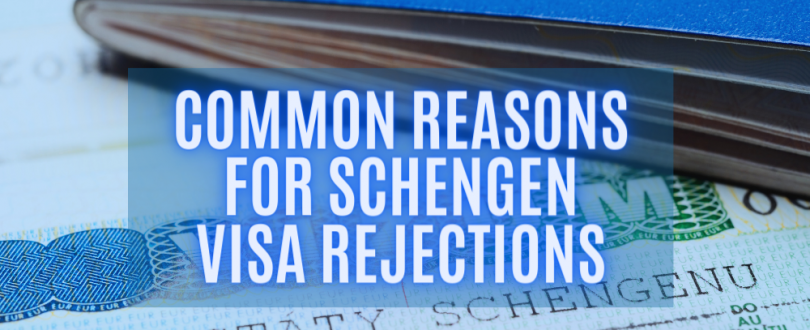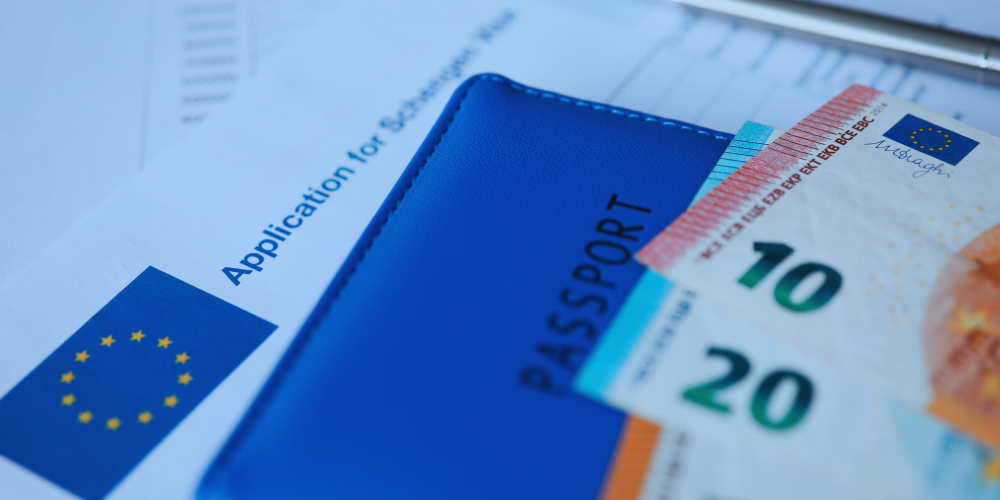
Have you ever faced the disappointment of a Schengen visa rejection? Understanding the reasons behind visa rejections can be key to successful future applications. This blog post delves into the most common pitfalls that lead to visa denials and offers practical tips on how to avoid them. By the end of this guide, you’ll be better prepared to navigate the application process with confidence, ensuring your application is as robust as possible.
Understanding Schengen Visa Rejections
A Schengen visa rejection can halt your European travel plans, making it essential to understand the underlying reasons for these denials. A rejection indicates that the consulate found one or more issues with your application that do not meet the criteria set under Schengen visa regulations. By recognizing these common issues, you can improve your chances of approval.

Common Reasons for Visa Rejection
Insufficient Documentation
Many rejections stem from incomplete or incorrect submissions. It’s crucial to provide all requested documentation, including accommodation proofs, detailed itineraries, insurance, and financial statements, fully updated and accurately filled.
Invalid Travel Insurance
Travel insurance that covers medical emergencies and repatriation with a minimum coverage of €30,000 is mandatory for all Schengen visa applications. Insurance that falls short of these specifications often results in visa refusal.
Lack of Proof of Sufficient Funds
You must demonstrate that you have sufficient funds to support your stay in the Schengen area. This can be shown through recent bank statements, payslips, or other financial proofs. Inadequate evidence of financial means is a common reason for visa denial.
Unclear Purpose of Visit
Clearly state whether you are visiting for tourism, business, family visits, or other reasons. Vagueness or inconsistency in the purpose of your visit can trigger doubts and potentially lead to rejection.
Questionable Travel Itinerary
Your travel itinerary should detail your route, including entry and exit plans from the Schengen area, and be realistic and well-structured. An incomplete or implausible itinerary raises concerns about the legitimacy of your plans.
Past or Current Immigration or Legal Issues
Violations such as previous overstays, deportations, or criminal records within the Schengen area can adversely affect your application. Transparency and supporting documents to explain resolved issues can improve your application’s credibility.
Doubts About Intent to Return
Consulates require reassurance that you will leave the Schengen area before your visa expires. Demonstrating strong ties to your home country through job evidence, property deeds, or family commitments can help mitigate these concerns.
How to Avoid These Common Pitfalls
Ensuring Complete and Accurate Documentation
Verify your application against the consulate’s checklist, ensuring that every document is present, accurately completed, and current. Arrange your documents as recommended by the application guidelines.
Choosing the Right Travel Insurance
Opt for a travel insurance policy that explicitly meets the Schengen visa requirements. Be prepared to discuss your insurance details during the visa interview if necessary.
Demonstrating Financial Capability
Present clear, recent financial documents. A summary or explanatory note can help clarify the context of your financial evidence to the visa officer.
Defining the Travel Plan
Create a detailed itinerary that includes confirmed hotel bookings, travel tickets, and a day-to-day schedule. This demonstrates thorough planning and substantiates the declared purpose of your visit.
Addressing Past Immigration History
Include a well-drafted cover letter addressing any previous immigration issues, supported by legal documents or prior visa records, to show resolution and compliance with international travel laws.
Proving Ties to Home Country
Strengthen your application by including evidence of your ties to your home country, such as employment verification, educational commitments, or family responsibilities.
Successfully securing a Schengen visa involves careful preparation and attention to detail. If you’re seeking expert assistance to navigate this complex process, Visahelp can help. Our professionals are dedicated to providing personalized visa assistance, ensuring your application is complete, compliant, and well-positioned for approval.
Are you ready to approach your Schengen visa application with newfound confidence? Contact Visahelp today, and let our experts guide you through the process with comprehensive support and tailored advice. Start planning your European adventure with confidence, knowing Visahelp is here to help you achieve your travel goals.

